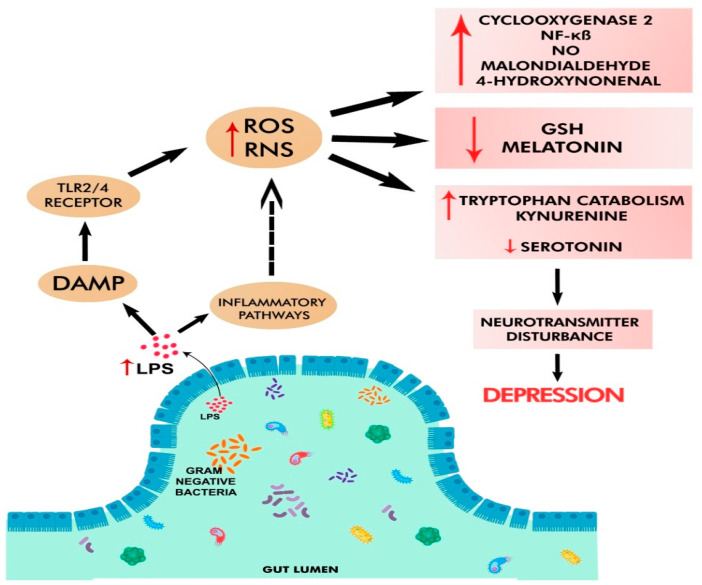Figure 2.
Oxidative and nitrosative stress in depression. Pathobionts in GD elevate gut leakiness and circulating LPS levels, which trigger DAMP, TLR2/4 receptor, and inflammatory pathways. These lead to increased levels of reactive oxygen/nitrogen species (ROS/RNS), cyclooxygenase-2 (COX-2), NO, malondialdehyde, 4-hydroxynonenal, tryptophan catabolism, kynurenine, and decreased amounts of antioxidants (e.g., glutathione, melatonin, and serotonin). All these changes negatively affect neurotransmission and cause depression.

